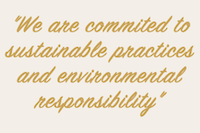The use of circular economy concepts for hospitality businesses has been on the rise in recent years and is a useful way to reduce the environmental impact of their operational practices. In 2022 Acorn Tourism worked with Buro Happold on a World Bank funded project ‘Circular and Resilient Tourism on Small Islands and in Coastal Destinations’. For this project we travelled to Cabo Verde, Sao Tome and Principe and The Gambia to engage with the private sector to better understand the current opportunities and constraints they face in developing a circular economy model.
The circular economy model relates to the production and consumption of goods. This involves sharing, leasing, reusing, repairing, refurbishing, and recycling existing materials and products for as long as possible. In this way, the life cycle of natural and processed materials is extended, and the economy becomes regenerative in design. This is a departure from the traditional, linear economic model, which is based on a take-make-use-dispose pattern.

With the tourism sector being such a product and asset heavy industry, implementing a circular economy model into the supply chain and operations is important. The implementation of this model will help to reduce the amount of waste that is produced by accommodation stakeholders, alongside creating cost saving measures and helping to increase the health and wellbeing of residents and staff.
Whilst implementing such models can be challenging and time consuming for hospitality businesses around the world, those located within remote locations or on island destinations (especially in developing countries) are likely to experience the biggest challenges.
The initial investment for sustainable goods and operational changes might seem costly. However, in the longer term there will be cost saving due to increased lifespan of products, improved visitor satisfaction and self-sufficiency.
In this article we touch on a few of these challenges and suggest opportunities for change for MSME hospitality businesses on island destinations. These changes can be implemented through behavioural changes by employees and guests and through quick fix operational changes.
Waste Management
Waste disposal and management is a major issue for islands in developing countries as many do not have the resources to deal with waste in a responsible manner. This can lead to burning of litter, overflowing waste sites, leading to littered streets and oceans which cause negative effects on the planet and the health and wellbeing of local communities. Badly managed waste management can also ruin the look and feel of destinations and consequently can generate negative reviews, deter visitors, and create a reduction of visitor numbers over time.
Therefore, hospitality businesses must act to reduce the amount of waste produced in the first instance. For example, plastic water bottles are one of the accommodation providers' most significant waste items. Traveller advice might be against consuming the local tap water, making guests wary about drinking it. Hotels can, therefore, make investments in water filtration systems and glass bottles, helping to overcome this issue.
Other ideas for reducing waste include:
- Procuring larger packaged items
- Investing in items and goods with longer life spans
- Investing in upcycling and repurposing broken of worn goods
- Avoid buffet style food service, as this tends to create high food waste
- Reduce or abolish the use of single use plastic items, like straws, plates and plastic cups
- Procuring alternatives to single use plastic (this is discussed in further detail below)
- Partner with local initiatives and NGOs who are working on recycling waste through creating items for sale (case study below)
- Choose refillable package options instead of small single use items, for example amenities in guest rooms
Case Study: Santa Casa, Soa Tome and Principe
Santa Casa is a .png) charity organisation located just outside of Soa Tome City, they run several initiatives to support residents with job creation and increasing local health and wellbeing. One project involves the collection of plastic waste from accommodation providers for them to melt down and create consumer goods, including jewellery, furniture, and other goods.
charity organisation located just outside of Soa Tome City, they run several initiatives to support residents with job creation and increasing local health and wellbeing. One project involves the collection of plastic waste from accommodation providers for them to melt down and create consumer goods, including jewellery, furniture, and other goods.
Procurement Constraints
Availability of resources can also be a concern on island destination; many items are imported and sometimes there are a limited options for suppliers. Item availability may fluctuate, also causing difficulty for accommodation providers to change and stick with more sustainable alternatives. To overcome these issues businesses can:
- Partner with other local businesses to lobby for change with suppliers
- Use a mix of different suppliers, don’t constrain yourself to just one
- Procure items locally, build relationships with local suppliers who may be able to build or make your required items
- Invest in buying sustainable items from abroad where items are impossible to find locally
- Support local farmers and food producers
Case Study: Footsteps Eco Lodge, the Gambia
Footsteps Eco .png) Lodge work with local suppliers like MyFarm, a women’s initiative to buy their soap that they provide to guests in the bathrooms. Through this partnership they are not only buying products that use local materials but also supporting local economic development.
Lodge work with local suppliers like MyFarm, a women’s initiative to buy their soap that they provide to guests in the bathrooms. Through this partnership they are not only buying products that use local materials but also supporting local economic development.
Resource Efficiency
Islands often experience issues with limited resources, consequently MSMEs catering to tourists face challenges in sourcing materials, energy, and water due in these regions. This scarcity not only affects operational costs but also exacerbates the environmental impact of resource extraction and transportation. Many island destinations also experience load shedding, where the energy sources are turned off intermittently throughout the day. Not only does this create high outgoings of fuel costs due to the need to run a generator, but it may also reduce the lifespan of electrical equipment. Ideas on how to overcome these issues include:
- Invest in renewable energy sources
- Adopting water saving technologies
- Incentivising and encouraging staff and guests with resource efficiency practices (see case study below)
- Invest in staff training
- Develop policies around resource reduction
- Clean and service electrical equipment on a regular basis
- Invest in tracking tools, helping to track and set reduction goals.
Case Study: Casamarel, Cabo Verde
Casamarel is a small boutique accommodation on the island of Sao Vicente in Cabo Verde. They undertook a renovation before that took 18 months before they opened for business. During this renovation the owners invested in a number of technology systems to support their efforts in being a sustainable accommodation provider with a low carbon footprint. Not only have they invested in solar panels, grey water systems, they have also invested in sensors that turn off aircon systems if the windows are opened, and water saving shower heads. To find out more about their operations and policies, click here.
low carbon footprint. Not only have they invested in solar panels, grey water systems, they have also invested in sensors that turn off aircon systems if the windows are opened, and water saving shower heads. To find out more about their operations and policies, click here.
These are just a few examples of how accommodation providers can implement circular economy principles to reduce their costs and their impact on the environment. If you would like to learn more about how your organisation or destination can work with your stakeholders to implement circular economy actions, contact us to discuss how you could approach this.
Related
Comments
Nobody has commented on this post yet, why not send us your thoughts and be the first?


.png)





